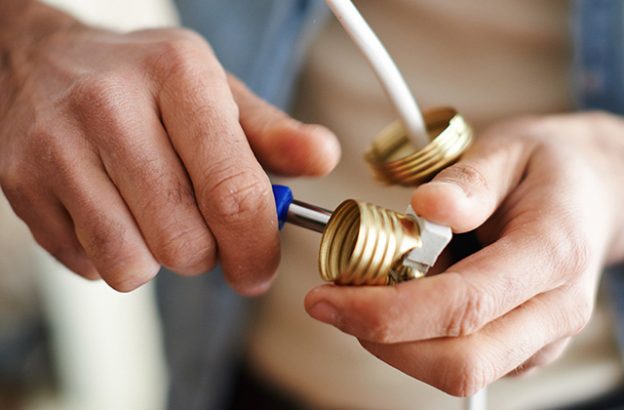Electrician Brisbane Southside do an excellent job as they always aim to be on time and arrive on site by the agreed upon time. An electrical circuit breaker is a switching device that can be operated automatically or manually for controlling and protecting the electrical power system, and the electrical devices connected to it. The circuit breaker trips when too much electricity flows through it or when it cannot handle the excess current load. This means that the flow of electricity is cut off to keep your circuits from overheating or causing more damage.
If there were no circuit breaker trips, then house fires would have been quite a common issue. When a circuit breaker trips, then you have to go outside or down the basement, wherever the circuit breaker is located, and get the power back on again. It is important that spacial attention is given when the circuit breaker is designed so that safe interruption of arc is produced during the operation of circuit breaker. Even though the tripping of circuit breakers ensures safety, it can get quite frustrating to constantly experience them and getting the power back on repeatedly. If you know the reason behind the constant tripping, you can do something about it. Let us look at the three main reasons that cause circuit breakers to trip.
Three Reasons Why Circuit Breaker Keep Tripping
- Circuit OverloadsA circuit overload is one of the main reasons why circuit breakers trip constantly. This occurs when you want a particular circuit to provide more electricity than its actual capacity. This will lead to the overheating of the circuit which puts all the electrical appliances connected to the circuit at risk. For example, if your television is connected to the circuit which actually needs 15 amps but is now using 20 amps, then the circuit of the television system will get fried and damaged. The circuit breaker trips to prevent this from happening, potentially even preventing a major fire.You can address this issue by trying to redistribute your electrical devices and keeping them off of the same circuits. You can even turn off some devices to reduce the electrical load on the circuit breaker.
- Short CircuitsAnother common reason why circuit breakers trip is a short circuit, which is more dangerous than an overloaded circuit. A short circuit is caused when a “hot” wire comes into contact with a “neutral wire” in one of your electrical outlets. Whenever this happens, a large amount of current will flow through the circuit, creating more heat than what the circuit can handle. When this happens the breaker will trip, shutting off the circuit to prevent dangerous events such as a fire.Short circuits could occur for a number of reasons such as faulty wiring or a loose connection You can identify a short circuit by a burning smell that is usually left around the breaker. Additionally, you may also notice a brown or black discoloration around it.
- Ground Fault SurgesGround fault surges are similar to short circuits. They occur when a hot wire touches a ground wire that is made of bare copper or the side of a metal outlet box which is connected to the ground wire. This will cause more electricity to pass through it which the circuit cannot handle. The breaker trips in order to protect the circuit and appliances from overheating or from potential fires. If ground fault surges occur, you can identify them through a discoloration around your outlet.If you avoid or overlook any of these problems, you are putting the safety of your home and loved ones at great risk. If you experience tripping of the circuit breakers quite frequently, it is time to call in the professionals to investigate the problem. Do not try to handle this issue on your own.
If you are looking for electric cables, different types of cables, or cable sizes to get this issue fixed, call us at D&F Liquidators. We have a wide range of high quality electrical supplies at competitive prices.
